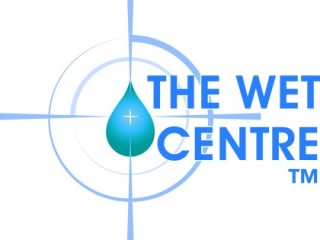
The WET (Water Efficient Technologies) Centre was set up in 2017 to demonstrate NIAB’s water use efficiency research in practice for commercial strawberry growers. The Centre has now evolved and developed into a facility that investigates ways of optimising key resources using novel approaches, and to increase precision, yields, fruit quality, and yield/harvest profiling in soft fruit crops.
Current work
Key findings
WET Centre partners
Consortium membership
Key features
- Establishing and demonstrating best practice growing systems for the UK soft fruit industry
- A centre of excellence bringing together leading suppliers of irrigation equipment, substrates, sensors, tunnel technology, nutrient feeds, biostimulants, and agrochemicals, along with specialist scientific knowledge to demonstrate advanced production techniques for soft fruit crops
- An integrated portfolio of leading-edge irrigation, water collection and tunnel technologies to help the soft fruit industry to improve resource use efficiency and productivity
- A demonstration of how outputs from NIAB’s R&D programme can be integrated into commercial soft fruit production to improve consistency of yields, fruit quality and resource use efficiency
- Systems based on twenty-five years of NIAB’s world-leading research at East Malling
 How we operate
How we operate
The WET Centre is divided into a ‘commercial area’ which mirrors typical commercial practice and an ‘advanced area’, which incorporates the latest technologies to control the microclimate more precisely. Not only can visitors to the site view this in action, but the scientists are able to make direct comparisons of fruit yield and quality between the two areas and report their results to the industry, allowing businesses to make informed decisions over whether to implement such technology on their own sites.
The latest strawberry and raspberry varieties being released by the East Malling Strawberry Breeding Club and the East Malling Rubus Breeding Consortium are also grown to demonstrate any advantages and shortcomings over existing industry standards.
In projects at The WET Centre, NIAB scientists collaborate with a multi-disciplinary team, including software engineers, data scientists, AI and machine learning experts, robotics and automation developers, crop modellers, meteorologists, and of course growers, to help to develop practical and affordable solutions to industry problems. The WET Centre allows us to conduct research on a scale that is relevant to commercial production systems, and so NIAB can see immediately whether a treatment, product, approach, or intervention has significant commercial impact and value. Having established this, we then know that our more detailed scientific research into crop and plant processes have both academic and commercial value.
Data sets generated at The WET Centre are very valuable because they are unparalleled in the UK and overseas. These data sets allow us to benchmark variety performance in different seasons and in other growing systems, such as Total Controlled Environment Agriculture (TCEA) systems, and to contribute to the detailed growing blueprints for Malling varieties that have been so well received recently. However, the data sets are expensive to produce at the resolution required, and so we continue to seek new partners to maintain the core industry funding for The WET Centre.
Recent expansion at The WET Centre
Most recently, the Centre has expanded to include raspberry tunnels where we are currently growing Malling™ Bella for a Netafim-led IUK-funded project on reducing fertiliser inputs and greenhouse gas emissions, using a combination of nitrogen-demand modelling, real-time NPK sensing and precision fertigation. We have also started to test new irrigation technology from Netafim to see if water and fertilisers can be distributed more evenly through the rootzone in a crop where Class 1 yield losses from inadequate fertigation scheduling are common.
The addition of Yara and Stoller to our funding consortium has enabled us to investigate the effects of some novel nutritional and biostimulant products in our commercial area. In 2022, Yaravita’s ‘Actisil™’ and ‘BioNue’ products are being tested to assess the effect on yield, fruit quality and shelf-life in Malling™ Champion, along with an iron product’s effect on fruit quality. We are also assessing the effects of Stoller’s products ‘Flower Power’ and ‘Green Forge’ in improving tolerance to, and recovery from, heat stress (a good year to do this!) along with their potential to improve yields, fruit quality and shelf-life. Another Stoller product (N Less Advanced Solution) is being used this year to understand if it allows us to lower nitrogen application rates without incurring and yield penalty.
Funders
Central to pioneering work done at The WET Centre are the Centre’s funders.
Their contributions enable researchers at East Malling to demonstrate the very latest science and technology and find answers to the soft fruit industry’s most pressing questions.
